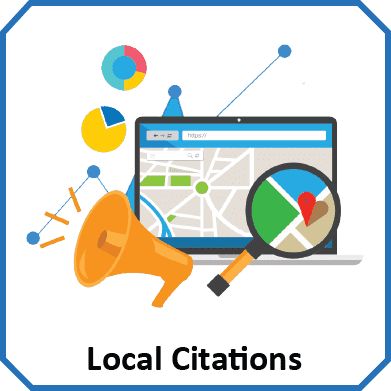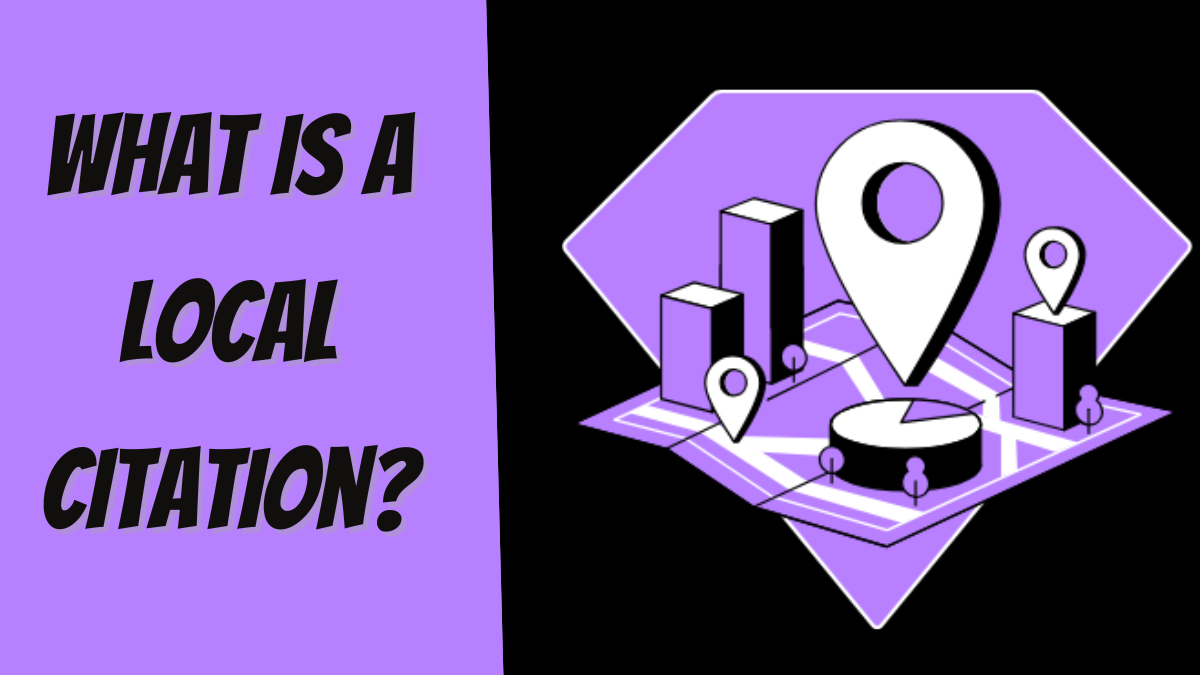What Is A Local Citation?
Are you a business owner looking to boost your online presence and attract more local customers? Then it’s time to dive into the world of local citations!
Whether you’re new to the game or just need a refresher, this blog post is here to guide you through everything you need to know about local citations.
From defining what they are to understand their importance for your business, we’ve got all the juicy details that will help skyrocket your visibility in the digital landscape. So grab a cup of coffee, sit back, and get ready for some citation magic!
Table of Contents
Definition of a Local Citation?
A local citation is a reference to a published source that can be found in the same geographic area as the work being cited. Local citations are important for researchers because they can help them find the source material for their research.
For example, if you are citing a study that was conducted in the United States, you would include a local citation for the study in your text. You could use the following format.

How Is A Local Citation Used?
- A local citation is a reference to a source that is specific to the geographical area where it was obtained. This type of citation can be used in academic papers, journal articles, and other written works for credit purposes.
- To create a local citation, you will first need to identify the source that you want to use. Once you have located the source, you will need to locate the appropriate entry in your work’s bibliography or index.
- After locating the entry, you will need to include the author’s name, the title of the work, and the page number or volume number from which you obtained the information.
For example, if you are citing a source from a journal article, the following format would be used:
(Author’s name), “Title of Article,” page number.
If you are citing a source from a book, the following format would be used:
(Author’s name), “Title of Book,” page number.
If you are citing a source from a website, the following format would be used:
(Author’s name), “Website URL,” page number.

Benefits of a Local Citation
A local citation is a form of citing a source that is specific to your location. This type of citation can be helpful when you need to cite information that is specific to where you are writing, speaking, or teaching.
For example, if you are writing about a city in your article, you would include the name of the city and the year in parentheses after the source information. If you are giving a lecture about Boston, Massachusetts, you would include “Boston (MA),” “1871-1971,” and the year in parentheses after the source information.
The Benefits of using a Local Citation Can Include:
- Increased accuracy – When citing information specifically for your location, it can help ensure that the information is accurate. By including the name of the city and year, you will avoid any potential errors that could occur if you were to cite general information about cities across America.
- Reduced time – Including a local citation can save you time when researching sources for your article or lecture. By knowing which city you are referencing, you will be able to locate sources more quickly.
- Increased legibility – When citing sources specifically for your location, it can make your sources more legible to readers. By avoiding generic references like “America” or “the United States,” your sources will be easier to follow and understand.
- Increased credibility – Including a local citation can increase the credibility of your work. By referencing sources specifically for your location, you are demonstrating that you are familiar with the information and have taken the time to research it. This can help build trustworthiness and respect among readers.
When deciding whether or not to use a local citation, be sure to consider the information that you are citing and the audience that you are writing for. While a local citation can be helpful, it is not always necessary.

Tips for Getting a Local Citation
Local citations are a great way to acknowledge the work of others and build your professional credentials. Here are a few tips for getting a local citation:
- Check the publication guidelines of your field or subfield. Many journals have specific requirements for citing sources within their publications.
- Contact your institution’s librarian or information specialist. They can point you in the right direction for finding local sources and can help you format your citations correctly.
- Ask your colleagues or students if they know of any good sources for local citations. Once you’ve gathered a few recommendations, try searching online databases like Academic Search Premier or JSTOR for relevant articles.
- Use online tools like Google Scholar to automatically find published sources that mention your name or article title. This is a great way to quickly identify relevant articles without having to manually search through citations.
- Check with your favorite online search engines for local citations of recent articles that match your topic or research question. This can help you build a comprehensive bibliography for your publication or presentation.
Whatever steps you take to get a local citation, make sure to follow the correct formatting and citation guidelines for your field. Doing so will help you build trust and credibility in your research community and improve the chances of being cited by others.
Examples of How to Cite a Document Using a Local Citation
To cite a document using a local citation, follow these steps:
- Identify the source of the information in the document.
- Find the appropriate endnote or bibliography for your citation.
- Write the author’s last name followed by ” et al.” (e.g., Smith et al.).
- List the page numbers for the source you identified in step one.
- Include a keyword that will help you find the source again if you need to reference it later on (e.g., “climate change”).
- End your citation with an en dash (–). For example Smith–et-al.–Page Numbers 1-12.
Conclusion
A local citation is a great way to show your readers that you have done your research and are credible sources of information. By providing a link back to the source material, you can help build credibility and trust with your audience.
In addition, citing the right sources can make it easier for your readers to find the information they need when researching a topic or article. So next time you are writing an article or looking for reliable information, be sure to include a local citation!






